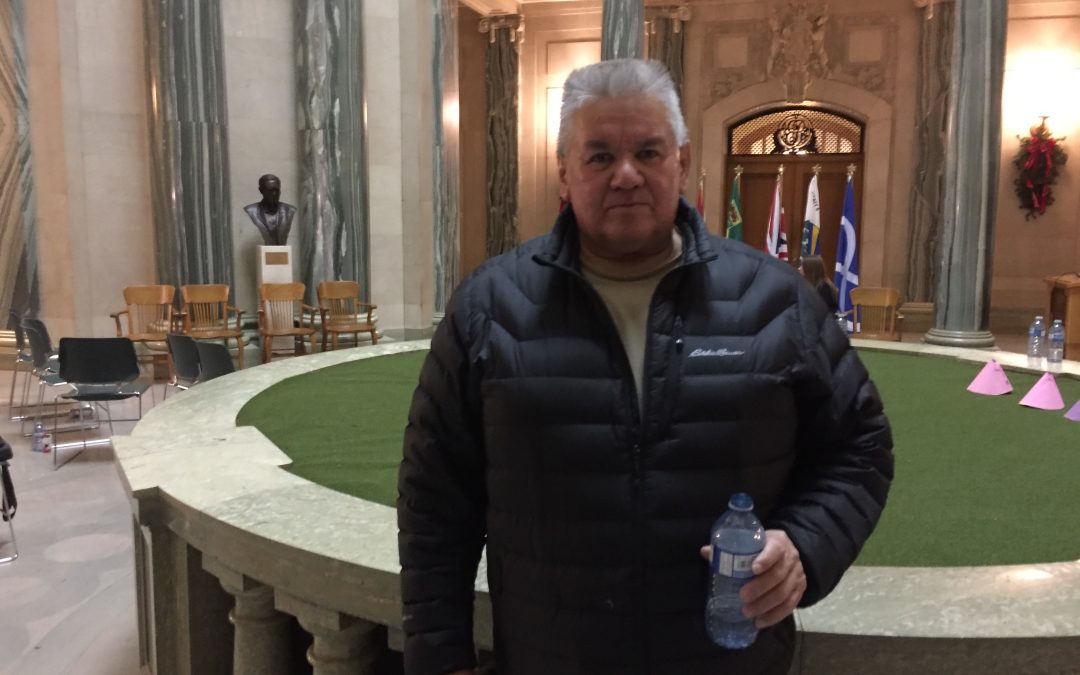Reaction to Premier Scott Moe’s apology to Sixties Scoop survivors Monday was mixed.
Some who had gathered at the Rotunda at the Legislature were seen clapping following Moe’s address, while others were wiping away tears.
The apology itself was three and a half years in the making and came after sharing circles in October and November, which opened old wounds.
Yet for survivors like Lori Deets she could not say whether the apology was meaningful.
“I think it was something that we have to do to appease them for a while. The whole situation to me and the situation everywhere is let’s do what we have to, to make peace for a while, but it doesn’t mean we’re going to take another step yet,” Deets told reporters following the apology.
Moe said sorry for the pain child apprehensions had caused the survivors.
“We’re sorry for the pain and sadness that you have experienced,” he said. “We’re sorry for your loss of culture and language. And to all those who lost contact with their family, we’re so sorry.”
As a result, Moe said the government let down many beyond just the Sixties Scoop survivors.
“We failed the survivors we heard from in the sharing circles and so many others. We failed their families and we failed their communities. We failed.”
The Chief of the Little Pine First Nation says the apology was not satisfying.
As a child, Wayne Semaganis witnessed his cousins being taken by authorities, which made him live in fear.
“On the day that happened, we were living with our grandmother. These people just showed up, knocked on the door. They asked if these were my late Aunt Lillian’s children. My Grandmother said yes, not expecting anything. They walked in, pushed my grandmother, because she was trying to stop them, pushed my grandmother aside and took the children and left,” said Semaganis.
“Every day after that when there was a knock at the door, the fear that we had, that we were next, the fear that we were going to be taken away. As a child that’s the fear you have.”
Both Deets and Semaganis agree that what comes next in changing government policies around First Nations child welfare will define whether the apology has meaning or are just words.
With files from Fraser Neeham.
(PHOTO: Little Pine First Nation Chief Wayne Semaganis. By Dan Jones)
